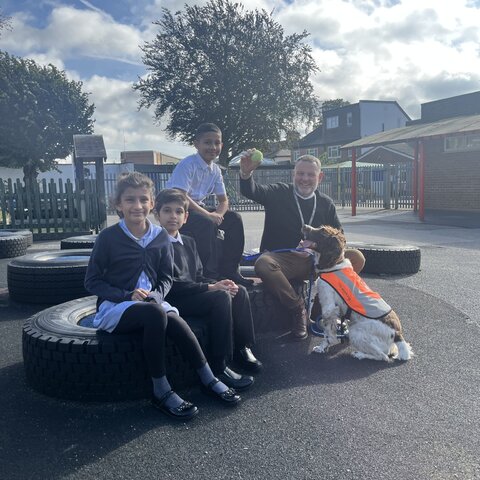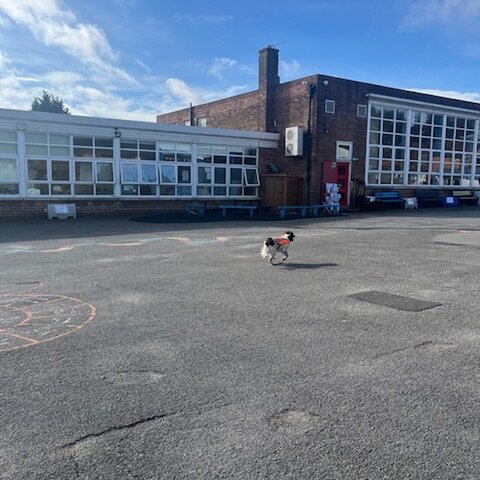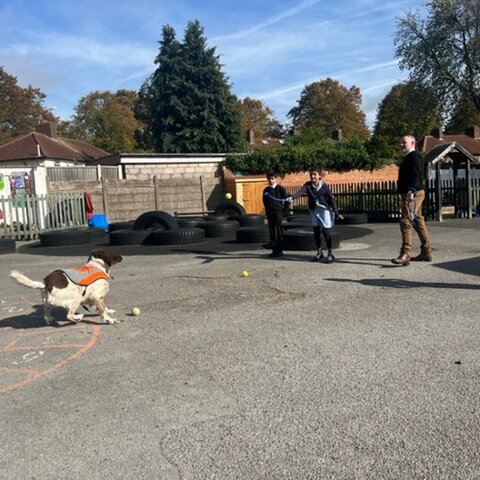A child’s relationship with an animal can play an important role in their lives. Children frequently draw animals, talk about animals and even dream about them. Studies have found that children with companion animals have higher self-esteem, greater empathy, more engagement with peers and other prosocial behaviours. Research into the bonds between children and animals has shown that they promote healthy connections in the brain and help to strengthen intellectual, physical, emotional and creative processes.
The dog mentor programme has built on the benefits of the human-animal bond by providing children positive experiences with dogs that can help them educationally, developmentally, emotionally and socially.
Clearly, just like a two-year old child, Lenny has emotions although his range of emotions is smaller than that found in a human. Dogs go through their developmental stages quicker than humans do and have all their emotional range by the time they are four to six months of age – depending on the rate of maturation for their breed.
The range of emotions does not exceed that of a 2½ year old child, but this does mean Lenny has developed the basic emotions of excitement, contentment, distress, disgust, fear, anger, joy, suspicion and love. Dogs do not develop the more complex emotions of shame, guilt, pride and contempt.
Lenny began working with some of our pupils in 2021 and continues to work with identified pupils who need his support. He works to develop children’s self-esteem, behaviour, peer relationships and overall engagement skills.
Often, Lenny can be found on the school twitter feed where he updates us all with his recent activities and future events. He can also be seen at the school gate where he greets the children on their way into school and around school with Mr Newman-Smith during the school day.
Lenny looks forward to working with many children during his school career and meeting many of you as you come into our school and visit.
Lenny2023




.jpg)



